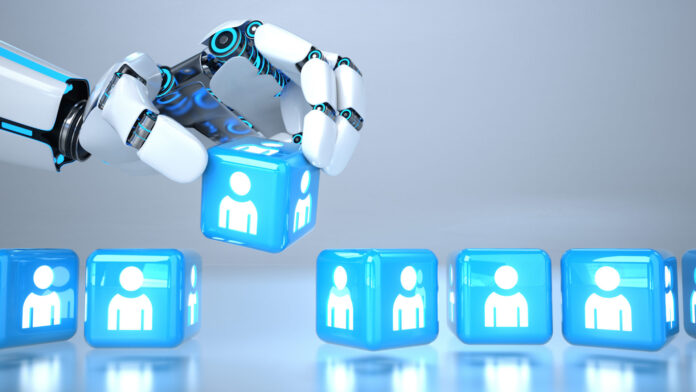In today’s rapidly evolving digital landscape, efficient talent acquisition is crucial for business success. Companies are constantly refining their recruitment strategies to remain competitive, and Artificial Intelligence (AI) has emerged as a game-changer. By automating tasks, improving decision-making, and streamlining onboarding, AI is redefining how organizations attract and hire top talent.
With the global AI-driven recruitment software market projected to reach $890.51 million by 2028, it is evident that this technology is here to stay. But what makes AI so valuable? From automating routine hiring processes to offering data-driven insights, AI is setting new standards for efficiency and effectiveness in recruitment.
The Impact of AI on Recruitment.
The integration of AI in recruitment is reshaping traditional hiring methods, bridging the gap between human expertise and machine efficiency. Rather than replacing recruiters, AI enhances their capabilities by allowing them to focus on strategic areas such as talent engagement and workforce planning.
By processing vast amounts of data, reducing manual workload, and offering valuable hiring insights, AI optimizes recruitment processes while making them more candidate-centric.
Key Advantages of AI in Hiring.
Increased Efficiency and Process Optimization.
AI-powered tools simplify time-consuming recruitment tasks such as resume screening, scheduling interviews, and shortlisting candidates. With AI, thousands of resumes can be analyzed within minutes, identifying applicants who best match job requirements.
This allows recruiters to concentrate on high-value tasks like engaging with candidates and building proactive hiring strategies. In fact, 42% of recruiters anticipate AI playing a more strategic role in improving hiring outcomes and candidate experiences.
Data-Driven Hiring Decisions.
AI goes beyond automation it provides actionable insights. By analyzing hiring patterns, AI can predict outcomes and recommend strategies aligned with business goals.
For example, machine learning algorithms can identify trends in candidate profiles, pinpointing individuals most likely to excel in a given role. Similarly, predictive analytics help companies determine the best talent sources for future recruitment needs.
Automated Communication for a Better Candidate Experience.
AI-powered chatbots and automation tools have redefined candidate engagement by ensuring real-time communication. From providing application status updates to answering candidate queries and scheduling interviews, these tools create a seamless experience.
By automating communication, recruitment delays are minimized, bias is reduced, and a more inclusive hiring process is promoted.
Enhanced Onboarding for New Employees.
AI’s impact extends beyond hiring it also enhances onboarding. AI chatbots provide 24/7 support to new hires, answering their questions and helping them settle into their roles.
Recruiters can also use AI to design personalized onboarding programs tailored to different roles and skill levels. This approach fosters a sense of belonging from day one, boosting employee engagement and retention.
Challenges and Ethical Considerations.
Despite AI’s advantages, it is crucial to address potential risks. AI tools can unintentionally reinforce biases if trained on historically biased data. Additionally, excessive automation may reduce human interaction, which is essential for trust-building and candidate experience.
To mitigate these challenges, companies must ensure transparency, conduct regular audits of AI systems, and maintain a human-centered approach. By combining technology with ethical hiring practices, organizations can create fair and effective recruitment strategies.
The Future of AI in Recruitment.
AI’s role in recruitment is not a short-term trend it is a transformative force shaping the industry. As technology advances, we can expect further innovations, including adaptive learning systems, hyper-personalized candidate experiences, and seamless integration with broader HR technologies.
However, the future of hiring lies in striking a balance between AI’s efficiency and human expertise. Recruiters will continue to play a vital role in talent acquisition, culture building, and strategic decision-making, while AI handles automation and data analysis. Together, they can redefine the way businesses attract, hire, and retain top talent.
Conclusion.
AI is not just streamlining recruitment—it is elevating it to new levels. By improving efficiency, enabling data-driven decision-making, and enhancing candidate engagement, AI empowers organizations to hire smarter and faster. However, the human element remains irreplaceable. The key to maximizing AI’s potential in recruitment lies in maintaining a balance—leveraging technology for efficiency while preserving the empathy and personal connections that define successful hiring practices.





